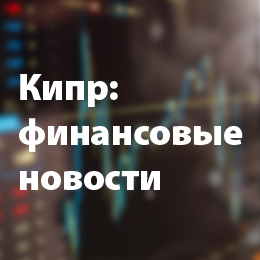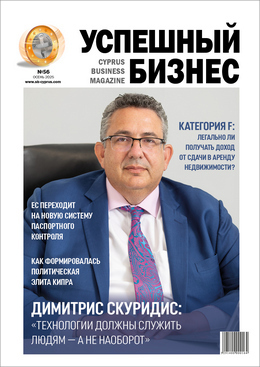At the time of writing (14 March 2022), it is difficult to make predictions for Cyprus in 2022. This is due to the fact that it is impossible to forecast how long the military phase of action in Ukraine will last, and what type of solution one can expect.
For 2022, however, it is likely that no matter what occurs (assuming this does not involve escalation into a regional conflict between NATO and Russia), the impact on Cyprus will be severe. The following issues should be taken into account in evaluating the impact of the current conflict.
Inflation
According to Cystat, inflation in February 2022 was running at 6.6% compared with February 2021. The key inflation components include:
• Petroleum Products: 28.4%
• Electricity: 22.4%
• Agricultural Goods: 17.5%
Inflation will certainly rise further given the impact of issues that will be explored in further detail below: energy prices; container shipping prices; and cereals and crop prices.
Source: Cystat.Consumer Price Index Timeseries
It is vital to note that in addition to the impact on Cyprus, the impact on the region may be disastrous. Countries such as Jordan, Egypt, Tunisia, Morocco, Libya and others depend on a wide range of price subsidies and controls to maintain the welfare of their populations. The price of fuel, for example, is often capped or subsidized, as is the price of wheat and basic agricultural staples.
The Arab Spring movement that engulfed Tunisia, Egypt, Libya, Syria and other countries was not only a movement against authoritarian leaders. It was a movement that was started by declining standards of living and by the sudden rise in prices of certain goods. In Egypt, for example, the official price of bread had increased by nearly 19% in 2011, prompting widespread unrest.
Russia and Ukraine collectively account for a large share of agricultural exports. According to a recent Information Note by the UN Food & Agricultural Organisation (FAO):
• 25% of global wheat and meslin exports are from Ukraine and Russia;
• 14.4% of global corn exports are from Ukraine and Russia;
• Over 50% of sunflower oil production globally takes place in Ukraine and Russia.
Russia has already announced a suspension of agricultural exports. In Ukraine, most forecasts are that planting for the spring crop season may not take place at all, or may be significantly below 2021 levels.
Additional price rises for agricultural production will take place due to rising energy prices, which affect not only operations but also fertilizer production.
Energy Prices
Energy prices have risen significantly since November 2021. The EIA reports that imported energy prices reached $ 110.5 per barrel in March 2022. (This is based on a combination of all imported prices as of 3 March 2022. Please take into account the time lag of spot market prices due to shipping times). The US recently announced a full oil and gas embargo on Russian energy exports, which has taken the spot market price higher.
Source: Energy Information Agency. Short Term Energy Outlook Data Browser. 8 March 2022.
Cyprus is reliant on oil and gas for over 80% of its energy production. While the government has partially subsidized energy price rises via the Electricity Authority of Cyprus, unless further measures are taken there will be further significant rises in 2022.
This means that every aspect of life in Cyprus will become more expensive: from the cost of heating and air conditioning, to the price of food, to transport costs. Cyprus is also depending on air transport for tourism and cargo, as well as shipping, so
As with other price components, this affects not only Cyprus, but every other country as well. Rising energy prices will make the Cyprus tourism product less competitive and will also depress available consumer income in tourism source markets. It may also lead to instability in certain countries in the region.
Container & Shipping Prices
Cyprus has been suffering from the dramatic increase in container and shipping prices that have been taking place since 2021. This has been due to an increase in shipping volumes as well as port congestion, as well as due to a lack of physical container availability.
Source: Drewry World Container Index. 10 March 2022.
The interruption of Black Sea shipping traffic as well as the wider sanctions against Russia should lead to a decline in container prices. However, any military action against container vessels, or any adverse developments relating to China, may lead to a panic that drives shipping costs and insurance costs higher.
Russian Default
Fitch and other ratings agencies have either cut Russia’s sovereign rating, or have signalled that they will do so. Both the International Monetary Fund (IMF) and Russia have announced that while Russia is in a position to repay its international debt obligations, the freezing of Russian Central Bank Assets means that it may choose not to, or may repay in Roubles. In addition to sovereign debt, there are a range of private loans, bonds and other securities that will be affected. It is unclear what the impact of a default will be: this will depend on the level (sovereign or private); the lender; capital reserves, and a range of additional factors. We note that under most commercial agreements, sanctions and war suffice to trigger a force majeure clause.
Russian Capital Flight
Given the sanctions and the wider political climate that is emerging, it can be expected that Russian capital flight from Europe, and specifically from Cyprus, will continue and intensify.
Russian-Cyprus relations were already upset due to previous developments, notably the hostile banking environment created for Russian companies after 2014, and due to rising costs in Cyprus. The cost environment here is forecast to rise still further, given the massive cost overruns in the National Health System and initiatives to increase the corporate tax to 15%. Our estimate is that Russian companies will find a favourable and accessible regulatory and business environment in jurisdictions like Hong Kong or Dubai.
Russian and Ukrainian Strategic Exports (and Imports)
Russia and Ukraine are major players in specific sectors. Ukraine, for example, is a major steel producer and exporter. It also exports a range of other items, ranging from packaging to industrial components. Russia is a major producer and exporter of strategic minerals, and a major importer of industrial components. The trade disruption expected will have a major impact on a number of European and global industries.
Tourism in Cyprus
It is a foregone conclusion that in addition to the direct impact of the conflict, tourism arrivals will also be impacted by higher prices and lower disposable income across Europe, as well as a feeling of uncertainty and insecurity. Our forecast is that Cyprus will be lucky to achieve tourism arrivals of between 1.9 – 2.5 million in 2022. The sooner the conflict can be resolved, the higher the chances possible for higher arrivals.
Conclusions: Forecast for Cyprus
Cyprus remains an island in a relatively isolated geographic area. Its economy is based on the attracting of foreign investment that results in net exports. Tourism and fiduciary services are two such exports. Tourism from Russia and round-trip investment flows to and from Russia are at the heart of the Cypriot economy and business model.
In 2022 and thereafter, the conflict between Russia and Ukraine will have a major impact on the Cyprus economy, as well as on tens of thousands of families living here who, until now, have been able to bridge whatever political differences may have existed. The fact that an open conflict has been followed by extensive sanctions cutting Russia off from the world means that in the short term at least, the world has fundamentally changed.
As an EU Member State and NATO Partnership for Peace applicant, Cyprus is currently enforcing the international sanctions against Russia. Despite the close relationship between Cyprus and Russia, memories of the Turkish invasion and partition of Cyprus in 1974 also inform Cypriot attitudes to the current conflict.
Russia has already announced retaliatory measures. This means that no matter what, Cyprus will suffer from political risk and economic impact in 2022.
We believe that in addition to the purely economic impact of the conflict, an equally serious issue is the emotional component of it. Given the events from 2013 until now, is Cyprus still considered a safe haven for Russian assets and business? Is it still considered a competitive location?
For many other companies and, sadly, residents, we believe that the answer will be no. The past few years have indicated that Cyprus has become a less attractive destination given rising costs, a chaotic public administration and a congested banking environment.
The sanctions currently levied will leave many Russian businessmen and residents with a sense of betrayal and insecurity. And there is no shortage of jurisdictions ready to welcome Russian capital: Dubai and Hong Kong are two such examples. Repatriation to Russia is also an option.
In 2022, the Government of Cyprus must take immediate fiscal measures to prepare for a significant economic downturn as a result of this conflict. It should be prepared for a period of stagflation: declining economic output in a time of rising costs.
A preliminary estimate is hazarded: In 2022 in Cyprus, we would prepare for a 5% GDP decline and a 10% average price increase in most consumer price categories, with the potential exception of housing. This assumes, however, that there will be a rapid ceasefire and wider political settlement. It does not take into account public fiscal support measures.
Government fiscal measures should be prepared to support key sectors such as tourism in order to address this. Additional measures should be looked at to ameliorate the impact of higher energy prices.
Vulnerable groups in society should be shielded from the economic impact. A help line and resources should be made available for students, family members, travellers and others impacted by sanctions, including both the flight ban as well as the interruption of financial transactions. If the government cannot do this directly, it should make resources available to the Ukrainian and Russian embassies, issue relevant directives to banks, and provide resources for airports and airlines.
The government should also take steps to ensure that both Ukrainians and Russians in Cyprus feel secure, whether these are refugees, tourists, residents or citizens who have resided here for decades. Although emotions are understandably riding high, there is no room for vigilante-style attacks or mob rule.
We should also remember that personal opinions aside, the decision to launch the military action was made at the highest levels of the Russian government, and that ordinary Russians were in no way consulted on the decision.
If the government does welcome Ukrainian refugees—and we hope it will—then their reception should occur under civilized and sensitive conditions.
I would like to close this article with a rare personal note, because no amount of technocratic analysis can conceal the emotional grief I feel at the current situation.
As I reflect back on these extraordinary weeks to February 24, I also reflect back on all the brilliant Ukrainian and Russian entrepreneurs, investors, artists and others I have met since my first consulting trip to Moscow in October 1998. Since that first trip, I have implemented over € 1 billion in investment transactions—mainly in manufacturing—in Ukraine, Russia, Belarus, Kazakhstan, Uzbekistan, Kyrgyzstan, Azerbaijan and Moldova.
Along the journey, I have been privileged to work with some of the most talented engineers and entrepreneurs in the world, working under very difficult conditions.
Until 2014, I cannot remember encountering any kind of open enmity between Russians and Ukrainians, at least among ordinary people.
The opposite is true. I have seen Ukrainian investors set up factories in Russia, and vice versa. I have seen firms employing Ukrainians and Russians on equal terms, where the key issue is talent, not the colour of a passport. I have crossed the territories of two vast, talented countries that could literally feed the world if they wanted to. I have seen families of Ukrainians and Russians living together, not only in Ukraine and Russia, but all over the world.
The current situation reflects a failure on every level imaginable. The people who will ultimately pay is the very citizens on both sides whose protection and welfare should be the sacred duty of any political administration.
In 1919, William Butler Yeats, the Irish poet, wrote The Second Coming. Written after the end of the bloodshed of the First World War, and at the start of the Irish War of Independence against Britain, Yeats wrote these famous lines:
Turning and turning in the widening gyre
The falcon cannot hear the falconer;
Things fall apart; the centre cannot hold;
Mere anarchy is loosed upon the world,
The blood-dimmed tide is loosed, and everywhere
The ceremony of innocence is drowned;
The best lack all conviction, while the worst
Are full of passionate intensity.
It is sad to reflect that so just over 100 years later, we are nearly at the same place again. A global conflict threatens to overwhelm us. Countries and people whose natural inclination would be to work together are being forced apart into conflict. The decisions we individually and collectively make in the next weeks will determine the course of the next century.
I sincerely hope we do better than the last time.
Philip Ammerman
Financial consultant
Director Navigator Consulting Group Ltd
Этот адрес электронной почты защищён от спам-ботов. У вас должен быть включен JavaScript для просмотра.
Part 1 of the article: Cyprus in 2022: Assessing the Impact of COVID and Ukraine










